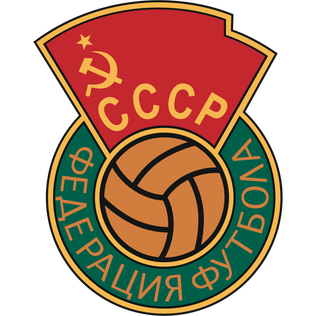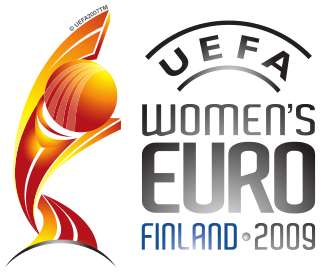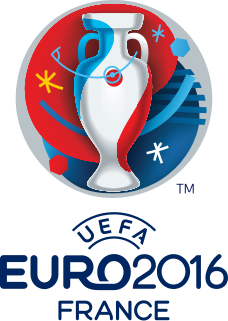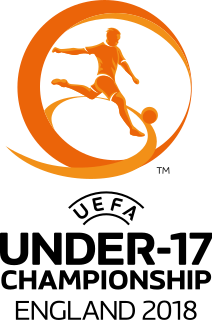Standings
| Rank | Team | Pld | W | D | L | GF | GA | GD | Pts |
|---|---|---|---|---|---|---|---|---|---|
| 1 | 6 | 4 | 2 | 0 | 24 | 2 | +22 | 10 | |
| 2 | 6 | 4 | 2 | 0 | 12 | 0 | +12 | 10 | |
| 3 | 6 | 2 | 0 | 4 | 9 | 16 | −7 | 4 | |
| 4 | 6 | 0 | 0 | 6 | 2 | 29 | −27 | 0 |
Group 3 consisted of four of the 32 teams entered into the European zone: [1] Belgium, Iceland, Netherlands, and Norway. These four teams competed on a home-and-away basis for one of the 9.5 spots in the final tournament allocated to the European zone, with the group's winner claiming the place in the finals.
| Rank | Team | Pld | W | D | L | GF | GA | GD | Pts |
|---|---|---|---|---|---|---|---|---|---|
| 1 | 6 | 4 | 2 | 0 | 24 | 2 | +22 | 10 | |
| 2 | 6 | 4 | 2 | 0 | 12 | 0 | +12 | 10 | |
| 3 | 6 | 2 | 0 | 4 | 9 | 16 | −7 | 4 | |
| 4 | 6 | 0 | 0 | 6 | 2 | 29 | −27 | 0 |
| Belgium | 4–0 | |
|---|---|---|
| Van Himst Polleunis Gunnarsson | Report |
| Iceland | 0–4 | |
|---|---|---|
| Report | Janssens Lambert Dockx |
| Norway | 4–1 | |
|---|---|---|
| Fuglset Lund Hestad Johansen | Report | Óskarsson |
| Netherlands | 9–0 | |
|---|---|---|
| Neeskens Cruyff De Jong Brokamp Keizer | Report |
| Belgium | 0–0 | |
|---|---|---|
| Report |
| Netherlands | 5–0 | |
|---|---|---|
| Van Hanegem Cruyff Haan Brokamp | Report |
| Iceland | 1–8 | |
|---|---|---|
| E. Geirsson | Report | Brokamp Cruyff Neeskens Van der Kerkhof Schneider Van Hanegem |
| Norway | 1–2 | |
|---|---|---|
| Hestad | Report | Cruyff Hullshoff |
| Netherlands | 0–0 | |
|---|---|---|
| Report |

The 1990 FIFA World Cup was the 14th FIFA World Cup, a quadrennial football tournament for men's senior national teams. It was held from 8 June to 8 July 1990 in Italy, the second country to host the event for a second time. Teams representing 116 national football associations entered and qualification began in April 1988. 22 teams qualified from this process, along with host nation Italy and defending champions Argentina.

The 2000 UEFA European Football Championship, also known as Euro 2000, was the 11th UEFA European Championship, a football tournament held every four years and organised by UEFA, the sport's governing body in Europe.

The 2008 UEFA European Football Championship, commonly referred to as UEFA Euro 2008 or simply Euro 2008, was the 13th UEFA European Championship, a quadrennial football tournament contested by the member nations of UEFA. It took place in Austria and Switzerland from 7 to 29 June 2008.

The Soviet Union national football team was the national football team of the Soviet Union.

The 2009 UEFA Women's Championship, or just Women's Euro 2009, was played in Finland between 23 August and 10 September 2009. The host was appointed on 11 July 2006, in a UEFA Executive Committee meeting in Berlin and the Finnish proposal won over the Dutch proposal.
The qualification for the 1984 European Competition for Women's Football was held between August 18, 1982, and October 28, 1983.

The 2016 UEFA European Football Championship, commonly referred to as UEFA Euro 2016 or simply Euro 2016, was the 15th UEFA European Championship, the quadrennial international men's football championship of Europe organised by UEFA. It was held in France from 10 June to 10 July 2016. Spain were the two-time defending champions, having won the 2008 and 2012 tournaments, but were eliminated in the round of 16 by Italy. Portugal won the tournament for the first time, following a 1–0 victory after extra time over the host team, France, in the final played at the Stade de France.
The qualification matches for Group 3 of the European zone (UEFA) of the 1994 FIFA World Cup qualification tournament took place between April 1992 and November 1993. The teams competed on a home-and-away basis with the winner and runner-up claiming 2 of the 12 spots in the final tournament allocated to the European zone. The group consisted of Albania, Denmark, Latvia, Lithuania, Northern Ireland, the Republic of Ireland and Spain.
The 2015 UEFA Women's Under-17 Championship was the eighth edition of the UEFA Women's Under-17 Championship, the annual European youth football competition contested by the women's under-17 national teams of the member associations of UEFA. Iceland hosted the tournament. Players born on or after 1 January 1998 were eligible to participate in this competition.

The 2017 UEFA European Women's Championship, commonly referred to as UEFA Women's Euro 2017, was the 12th edition of the UEFA Women's Championship, the quadrennial international football championship organised by UEFA for the women's national teams of Europe. The competition was expanded to 16 teams.

The 2018 UEFA European Under-17 Championship was the 17th edition of the UEFA European Under-17 Championship, the annual international youth football championship organised by UEFA for the men's under-17 national teams of Europe. England, which were selected by UEFA on 26 January 2015, hosted the tournament.
Group 4 consisted of four of the 32 teams entered into the European zone: Belgium, Iceland, Netherlands, and Northern Ireland. These four teams competed on a home-and-away basis for one of the 8.5 spots in the final tournament allocated to the European zone. The spot would be assigned to the group's winner.
Group 1 consisted of four of the 32 teams entered into the European zone: Austria, Hungary, Malta, and Sweden. These four teams competed on a home-and-away basis for one of the 9,5 spots in the final tournament allocated to the European zone, with the group's winner claiming this spot.
Group 4 consisted of four of the 32 teams entered into the European zone: Albania, East Germany, Finland, and Romania. These four teams competed on a home-and-away basis for one of the 9.5 spots in the final tournament allocated to the European zone, with the group's winner claiming the place in the finals.
Group 5 consisted of three of the 32 teams entered into the European zone: England, Poland, and Wales. These three teams competed on a home-and-away basis for one of the 9.5 spots in the final tournament allocated to the European zone, with the group's winner claiming the place in the finals.
Group 6 consisted of four of the 32 teams entered into the European zone: Bulgaria, Cyprus, Northern Ireland, and Portugal. These four teams competed on a home-and-away basis for one of the 9.5 spots in the final tournament allocated to the European zone, with the group's winner claiming the place in the finals.
Group 7 consisted of three of the 32 teams entered into the European zone: Greece, Spain, and Yugoslavia. These three teams competed on a home-and-away basis for one of the 9.5 spots in the final tournament allocated to the European zone, with the group's winner claiming the place in the finals. This group required a play-off to decide the winner.
Group 8 consisted of three of the 32 teams entered into the European zone: Czechoslovakia, Denmark, and Scotland. These three teams competed on a home-and-away basis for one of the 9.5 spots in the final tournament allocated to the European zone, with the group's winner claiming the place in the finals.
Group 9 consisted of three of the 32 teams entered into the European zone: France, Republic of Ireland, and Soviet Union. These three teams competed on a home-and-away basis with the group's winner advancing to the UEFA–CONMEBOL play-off with the winner of the play-off earning a place in the final tournament.

The 2021 UEFA European Under-21 Championship was the 23rd edition of the UEFA European Under-21 Championship, the biennial international youth football championship organised by UEFA for the men's under-21 national teams of Europe. Initially, 12 teams were to play in the tournament, however on 6 February 2019, UEFA's executive committee increased this number to 16. Only players born on or after 1 January 1998 were eligible to participate.